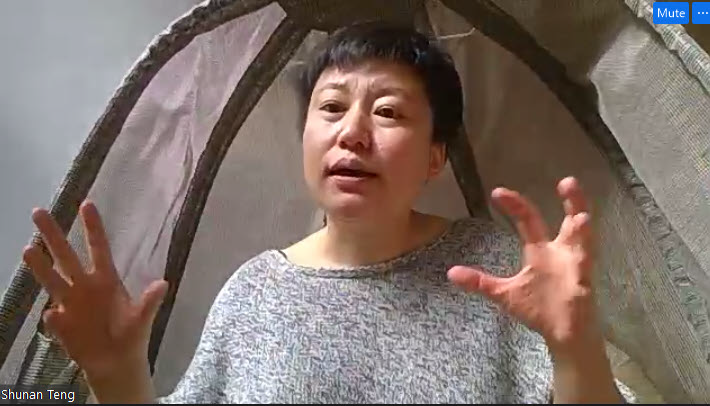Listen to the Tea Biz Podcast on iTunes | Spotify | Sounder | Stitcher | Alexa
Hear the Headlines for the Week of March 26

| India High Court Reverses Tea Worker Wage Increase
| Kenyan Tea Factory Elections Suspended
| Study Finds Growers Adapting to Climate Change
Click to read this week’s in-depth Price Watch or listen to the summary below.
Save this permalink to hear the latest prices anytime on your phone.
Features
This week Tea Biz discusses a retail-inspired tea education club that delves deeply in the “geeky” aspects of terroir, horticultural practices, and processing during rare-tea cupping sessions at home
…. and we travel to London to weigh the marketing value of third-party certifications against authentic “boots-on-the ground” community involvement tailored to local needs.

Certifications Soothe the Conscience, But Do They Deliver for the Communities Where Workers Reside?
By Dananjaya Silva | PMD Tea
In principle tea certification programs have positive impacts but in practice results are highly location-specific and mixed. Farmgate prices generally rise along with gross income, but so do costs that are borne by farmers in about 60 percent of certification programs. Certifications are an imperative for marketers seeking to export tea – third-party certifications soothe the conscience of retailers and consumers, but do they address the needs and interests of tea workers in the communities in which they reside? Read more…

Online Tea Education Club in a Class All its Own
By Dan Bolton
New York’s Tea Drunk tea house is normally bustling with tea lovers gathered to sip and learn. Since opening in 2013, founder and first-generation immigrant Shunan Teng, an accomplished speaker and educator, taught by example, telling stories of her annual buying trips while pouring tea for customers. Last March, Teng, who normally spends three months a year with heritage growers in China, was grounded – worse yet, her thriving business was locked down.
![]() Listen to Japanese Resilience and Resolve, Part 1: The story of the T?hoku Quake Tea Relief Caravan. | Click to see photos of their adventure.
Listen to Japanese Resilience and Resolve, Part 1: The story of the T?hoku Quake Tea Relief Caravan. | Click to see photos of their adventure.
Maruyama Tea: 21st Century Japanese Tea Production
Tea News you Need to Know
Assam High Court Halts Wage Increases
A 50-rupee per day wage increase for Assam tea workers announced in February was halted by the state court on behalf of 17 tea companies and the Indian Tea Association. ITA filed the motion citing the state’s failure to properly examine financial and other impacts via subcommittee.
On March 16 the Gauhati court ruled that garden managers are at liberty to pay the interim wage hike, but it is not mandatory, pending further review. The decision means tea estates can continue to pay workers a minimum of 167 rupees a about ($2.30) per day.
Biz Insight – In the hotly contested Assam State elections India’s National Congress Party promised to more than double the daily wage to 365 rupees (about $5 US). The ruling BJP promises to increase tea wages to 351 rupees per day. A court hearing is scheduled for April 23, two weeks after polling closes for the April elections.
Kenyan Tea Factory Elections Suspended
Elections naming the boards of directors of 54 tea factories supporting 640,000 small farms were suspended this week by a Nairobi court that overruled a presidential executive order. The Kenya Tea Development Agency (KTDA) and reformists seeking to enforce the Tea Act are competing for the board seats. President Uhuru Kenyatta, pressing for reforms, on March 12 ordered the elections to proceed. KTDA responded by filing a motion to stop the elections. The Tea Act signed in December re-establishes the Tea Board of Kenya with orders to streamline the sector. Once the legal disputes are resolved, the board will be in charge of running Kenya’s tea factories — a change KTDA opposes.
Biz Insight – Farmers in six factory districts have already cast ballots ousting KTDA incumbents and naming new directors as authorized under the Tea Act. Four other factories have scheduled elections March 31. President Kenyatta sought to conclude factory elections within 60 days, a timetable upended by the court
Adapting to Climate Change
New study by researchers at the Tocklai Tea Research Center recommends motivational campaigns, demonstrations, training, and extension work to encourage growers large and small to adapt to climate change.
The study Perception of Climate Change and Adaptation Strategies in Tea Plantations of Assam India analyzed tea growers’ awareness of climate change, its impact on tea, adaptive approaches undertaken and future strategies. The study was recently published in Environmental Monitoring and Assessment, a peer reviewed, scientific journal published by Springer. The work was authored by Dr. Pradip Baruah and Dr. Gautam Handique at Tocklai.
Three quarters of tea farm respondents (78.3%) reported a decline in productivity while 12% were uncertain. Only 9.6% believe that tea production was not vulnerable to climate change.
Rainwater harvesting and irrigation are common adaptations. Others include mulching to conserve soil moisture, reduce surface runoff and soil erosion while lowering soil temperature; reforestation, wildlife preservation, and the construction of wind barriers. “There is increasing evidence that climate change will strongly affect tea cultivation,” concludes a study of growers in Assam, the world’s top tea producing region.

Copy this link to share this Tea Biz BLOG|CAST with your colleagues
View the Tea Biz Newsletter Archive
https://teabiz.sounder.fm/episode/news-01212021
Subtext
Avoid the chaos of social media and start a conversation that matters. Subtext’s message-based platform lets you privately ask meaningful questions of the tea experts, academics and Tea Biz journalists reporting from the tea lands. You see their responses via SMS texts which are sent direct to your phone. Visit our website and subscribe to Subtext to instantly connect with the most connected people in tea.
Podcast Players
| ITunes | Spotify | iHeart Radio | Stitcher |
| Google Podcast | Amazon Podcasts | Tune In | Sounder |
Subscribe and receive Tea Biz weekly in your inbox.

